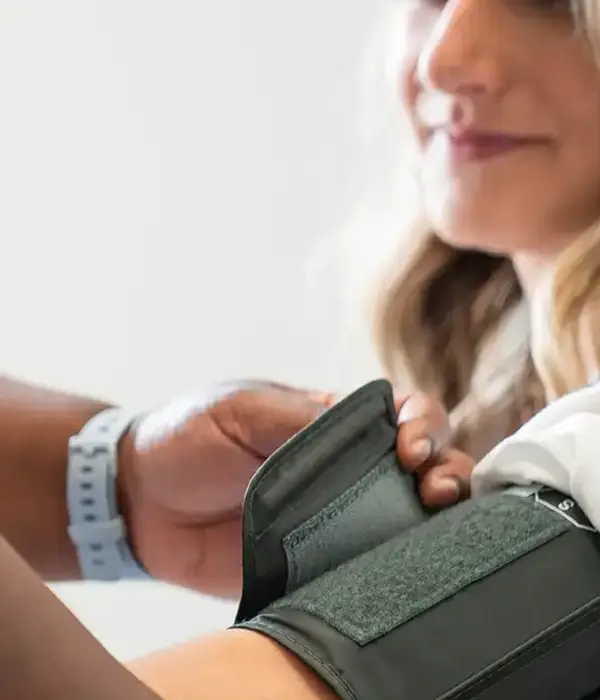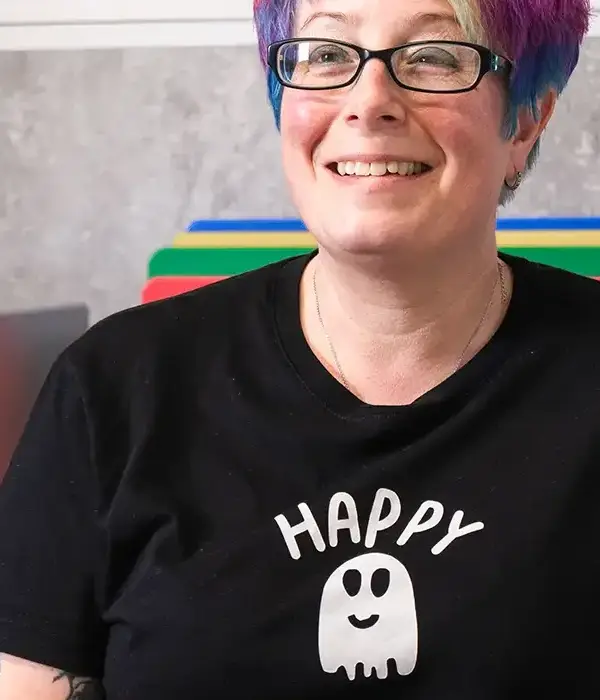Hallucinogen Addiction Treatment
Hallucinogen use can sometimes shift from occasional experimentation to something that feels harder to control. If you or someone you care about is struggling, know that you’re not alone and that support is available.
Hallucinogen addiction treatment offers a safe and understanding environment where you can begin to heal. Programmes often include help with withdrawal, counselling to work through underlying challenges, and guidance in building healthier routines. With the right structure and care, recovery can bring stability, renewed confidence, and a sense of balance back into your life.

Take the First Step Towards Recovery
Steps Together offers personalised support and proven treatments, providing the care, guidance and encouragement you need to move forward with confidence and build a healthier future.

Understanding Hallucinogen Addiction
Hallucinogen addiction develops when regular use of these psychoactive drugs changes how your brain works. People often use hallucinogens for their mind-altering effects, but repeated misuse can lead to dependence, dangerous behaviours, and mental health problems. Hallucinogens are a class of drugs that alter your perception of reality. You might see, hear, or feel things that are not there.
These drugs affect your mood, thoughts, and senses. They are often taken in tablet form or as a liquid. There are different types of hallucinogens: classic hallucinogens, which include lysergic acid diethylamide (LSD) and psilocybin, and dissociative drugs such as ketamine and Phencyclidine (PCP). Other hallucinogens include magic mushrooms, Dimethyltryptamine (DMT), and peyote.
Addiction and Dependence
While not all hallucinogens are physically addictive, psychological dependence can become a serious concern with habitual use. You may begin to crave the drug, rely on it to cope with stress or emotions, or feel disconnected without it.
Hallucinogen addiction is often marked by changes such as continued drug-seeking behaviour and continued use despite negative consequences. Tolerance can develop quickly, leading to the need for higher doses to achieve the same effects, increasing the risk of harm. Recognising these patterns is key to seeking help and beginning recovery.


Patterns and Risks of Use
The use of hallucinogens often starts through experimentation or social situations. You might use these drugs at parties, festivals, or to escape stress. Some users take more than one substance at once (polydrug use), increasing risks.
Risks include accidents or risky behaviour, flashbacks and ongoing mental health problems, legal issues, as many hallucinogens are illegal, and worsening anxiety or psychosis, especially in those with mental health vulnerabilities.
Hallucinogen Rehab
A hallucinogen addiction treatment programme often combines medical support, psychological help, and practical rehab programmes. Each treatment approach addresses specific needs, aiming to help you manage withdrawal, develop coping skills, and prevent relapse.
Detoxification and Medical Support
Hallucinogen detox helps your body remove drug toxins. This process is ideally done in a supervised setting for safety. Medical support is important because some hallucinogen withdrawal symptoms, such as agitation, sweating, or confusion, can be uncomfortable and unpredictable.
During detox, healthcare professionals monitor signs such as blood pressure, heart rate, and mental state. They may provide medication to ease anxiety, manage vomiting, or deal with sleep problems. Medical staff also watch for physical health issues that may arise from long-term drug use.
Therapeutic Modalities and Support
Several therapeutic modalities help address the psychological side of addiction. One-to-one therapy gives you space to discuss triggers, past trauma, and mental health issues with a professional. Group therapy connects you with others who face similar struggles, fostering mutual understanding and support.
Family therapy may be encouraged to help your loved ones understand the recovery process. It can also repair relationships and build a better support network. Some treatment programmes include art therapy or other creative therapies to help you express feelings and reduce stress.
Inpatient and Outpatient Hallucinogen Addiction Treatment
Outpatient treatment allows you to live at home while going on a recovery journey. This approach can be effective if you have strong support at home and minimal withdrawal risks. Both inpatient and outpatient settings deliver structured treatment programmes for LSD rehab, ketamine rehab, and other hallucinogen rehab needs.
Residential treatment often includes daily routines, group activities, and immediate assistance. Outpatient programmes offer flexibility with more self-responsibility. You and your healthcare team can determine the best treatment option for your needs, taking into account your medical history and risk factors.
Cognitive-Behavioural and Specialised Therapies
Cognitive-behavioural therapy (CBT) is a key tool in treating hallucinogen addiction. It helps you recognise negative thoughts and behaviours linked to drug use and replace them with healthier coping skills. CBT also teaches you how to manage cravings, prevent relapse, and make lasting lifestyle changes.
Therapies can also teach you practical ways to handle difficult situations, stress, or triggers without using hallucinogens. Specialised approaches can include motivational interviewing, mindfulness-based therapy, and skills training.
Most common hallucinogens treated in ourmulti-speciality addiction rehabilitation centres

Effects of Hallucinogen Use Disorder
When you take hallucinogens, common physical effects may include dilated pupils, increased heart rate, high blood pressure, chills, sweating, nausea, and vomiting. You might experience trouble with balance or feel numb in certain parts of your body.
Psychologically, these drugs cause hallucinations, altered perception, and sensory distortions. It is common to see, hear, or feel things that are not there. You may notice changes in the way you experience time, colours, and sounds.
Short-Term and Long-Term Health Risks
The short-term health risks of hallucinogenic drugs include side effects such as nausea, vomiting, dilated pupils, increased heart rate, sweating, and dizziness. Confusion, disorientation, and impaired judgement can also occur, increasing the risk of accidents or unsafe behaviour. These effects can be unpredictable and vary depending on the individual and the drug used.
Long-term effects of hallucinogen use can lead to mental health issues such as anxiety, depression, and paranoia. A rare but serious condition, Hallucinogen Persisting Perception Disorder (HPPD), can also develop, causing ongoing flashbacks, visual disturbances, and hallucinations long after the drug has been discontinued.

Recognising the Signs of Hallucinogen Addiction
You might become more withdrawn or avoid social interactions that you once enjoyed. It can also be common to experience strong psychological cravings or urges to use hallucinogens again.
Physical clues often include dilated pupils that do not match the light in the room. You might sweat more than usual or feel nauseous, even if you haven’t eaten anything unusual. Blurry vision, unsteady movement, and difficulty speaking can also be present.
Emotional signs of addiction to hallucinogens can include mood swings, anxiety, paranoia, and emotional numbness. You might feel disconnected from reality or experience intense fear or confusion. Persistent use can also lead to depression, irritability, or a lack of motivation, making it difficult to manage day-to-day responsibilities and relationships.
Recovery and Relapse Prevention
Maintaining progress after substance use takes careful planning and the right support. It is also important to address any mental health disorders that may exist, as these can make cravings stronger and relapse more likely.
Aftercare
Once you finish rehab, ongoing support helps you stay on track. Post-rehab support can include coaching, counselling sessions, and peer mentor groups. Many programmes also give you access to a helpline if you need help at any time.
Regular aftercare helps you identify early signs of relapse, such as psychological cravings or negative thinking. You may work with your care team to build a personalised relapse prevention plan. This plan often covers how to avoid triggers, handle cravings, and reach out for help if you start to struggle.
Social and Familial Support
Social and family support play key roles in recovery from hallucinogen use. Supportive relationships can provide encouragement, practical help, and a sense of connection that helps reduce the risk of relapse. Family and friends can help with recognising warning signs, developing healthy routines, and encouraging continued treatment.
In some cases, family therapy may be useful to repair trust and improve communication. A strong support network can make a significant difference in motivation, mental and emotional stability, and long-term recovery outcomes.
Managing Mental Health Disorders
Hallucinogen abuse is frequently connected to underlying mental health issues such as depression or anxiety. Treating these conditions alongside the addiction is essential for long-term recovery and can reduce the risk of relapse. In some cases, this is referred to as a dual diagnosis, where both substance use and mental health conditions are addressed together. Comprehensive aftercare plans usually include regular check-ins with a therapist or counsellor to monitor progress and provide continued support.
You may also learn practical coping strategies like mindfulness, relaxation techniques, and stress management to help manage cravings, reduce anxiety, and maintain emotional balance during your recovery journey.

You Can Beat Hallucinogen Abuse
Treatment for hallucinogen addiction often involves a combination of psychological therapies, support groups, and medical care when needed to manage withdrawal and related symptoms. At Steps Together, our hallucinogen addiction treatment programmes are tailored to help you or someone you know overcome drug use.
Through counselling, behavioural therapy, and personalised support, we help individuals struggling with hallucinogen addiction understand the root causes of their substance use and develop healthier coping strategies. Our goal is to support long-term sobriety and overall well-being.
Frequently Asked Questions
What are the common options for treating addiction to psychedelics?
Common options include talking therapies, medical support to help with withdrawal, and group counselling. Programmes often combine individual and group sessions to target both cravings and mental health issues. Some rehab clinics offer inpatient or outpatient care depending on your needs.
What is the recommended approach for withdrawal from hallucinogenic substances?
Safe withdrawal from hallucinogens is usually managed with medical support and supervision, especially if you’ve used them regularly. Withdrawal symptoms are mostly psychological rather than physical. Drug detox services provide monitoring and help reduce the risk of complications.
What support groups are available for individuals dealing with hallucinogen addiction?
Support groups such as Narcotics Anonymous can be helpful. These offer peer-based support, regular meetings, and guidance from others who have had similar experiences. Some local drug and alcohol services may also run specific groups for those with experience of hallucinogen use.
Can psychological therapies effectively manage hallucinogen dependency?
Yes, psychological therapies such as cognitive-behavioural therapy (CBT) are important for managing hallucinogen dependency. CBT helps you change harmful thought patterns and behaviours linked to drug use. These therapies can also address anxiety, depression, or trauma that may affect your recovery.
How does treatment for hallucinogen addiction differ from other substance abuse treatments?
Treatments for hallucinogen addiction often focus more on mental health and less on physical withdrawal symptoms. Unlike alcohol or opioids , hallucinogens rarely cause severe physical dependence. Programmes centre on psychological therapies and relapse prevention instead of medication.
Are there any medications prescribed to aid in the recovery from hallucinogenic drug addiction?
There are currently no medications specifically approved to treat hallucinogen addiction. Treatment usually focuses on therapy and support groups rather than prescriptions. If you also have other mental health conditions, a doctor might prescribe medicine for those issues, but not for the addiction itself.





